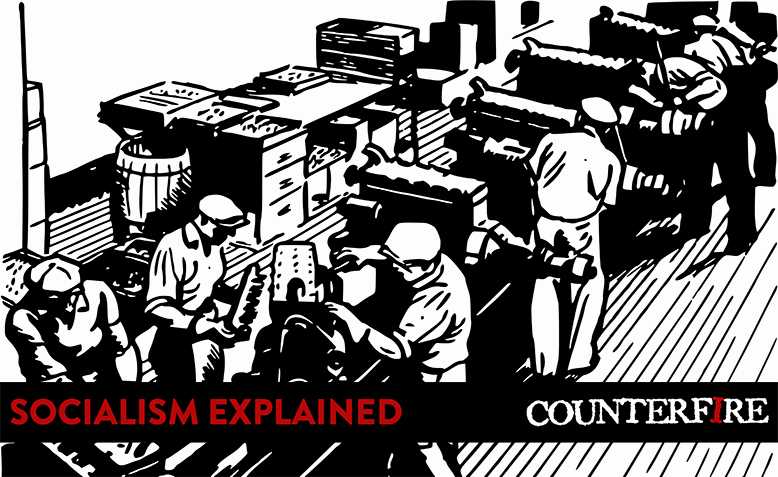 Workshop graphic. Photo: Public Domain
Workshop graphic. Photo: Public Domain
Dominic Alexander takes on the idea that a planned economy cannot work
Counterfire’s Socialist Explainers series
For well over a generation, there has been a mainstream consensus that economic planning cannot work. This has ruled out even a discussion of socialism. Yet, it has not always been like this. After the Second World War, when all the warring states engaged in state-led planning, there was a widespread assumption that post-war economies would depend on planning for rebuilding.
In West Germany for example, the newly founded Christian Democratic Union began with a working assumption that the capitalist market would have to be subordinated to social planning. Under US pressure, the Christian Democrats rowed back from this position, but West Germany always retained a high degree of government co-ordination of economic activity. So did post-war Japan and many other successful states.
A planned economy is entirely feasible today, because in many respects we already have one. The problem is that the planning is done by the great corporations for profit, rather than for social need or environmental sustainability. The idea that capitalism is based upon a mass of individual decision making, all resolved through the ‘market’, had some truth to it once. However, even by the mid-twentieth century, this model no longer applied.
The gigantic, multinational corporations which dominate today depend on sophisticated and elaborate planning across many different continents. Resources need to be sourced and transported, goods need to be manufactured using complex supply chains, and products need to be marketed and distributed for sale.
All of this involves planning. The problem is that the planning is done purely for the profit of a single corporation, which remains in competition with other capitalists, large and small.While cut-throat competition continues, the system has required the development of all the capabilities that would be needed to plan an economy for the social and environmental good.
This situation was tacitly accepted in the post-war period but that accepted version of reality was swept away by the resurgence of ‘free-market’ capitalism after the collapse of the command economies of the Soviet bloc in the early 1990s. The poor reputation of these economies has helped to banish the idea of planning from awareness as a current feature. They were seen to have been failures in comparison to Western capitalism, and to be undesirable options due to their highly oppressive nature. Two points need to be made here.
Firstly, it is a myth that the form of planned economy to be found in the Soviet Union and its satellites was a failure. In fact, the Russian economy was growing at a rate faster than the American in the post-war decades up to the global economic crisis of the 1970s.
Secondly, what brought it down as a system, apart from the strain of competing in an arms race with the US, was its authoritarian structure. Bottlenecks and wastage built up within the lines of production that were controlled rigidly from the centre. Stalinism was based on the exploitation of the working class, in a mirror-image of the Western system. As a result, it provoked resistance from below, and cynicism and corruption among those who ran it.
A planned economy does not have to take that form. It could be highly democratic involving local democratic planning, co-ordinated at higher levels by bodies that are also elected. Such a system could be geared towards social need and environmental sustainability, from the local to the global level. All the technology and the skills needed to make such a system already exist. It is a political question whether we are capable of creating the social power which could challenge the domination of capital and the drive of profit making.
Join Revolution! May Day weekender in London
The world is changing fast. From tariffs and trade wars to the continuing genocide in Gaza to Starmer’s austerity 2.0.
Revolution! on Saturday 3 – Sunday 4 May brings together leading activists and authors to discuss the key questions of the moment and chart a strategy for the left.

